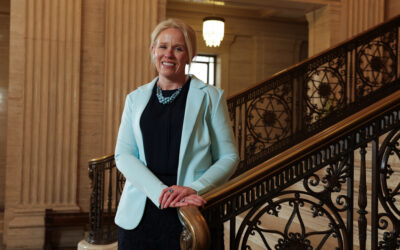Dorinnia Carville, Comptroller and Auditor General, Northern Ireland Audit Office Leadership is often perceived as a final destination, a pinnacle reached after years of experience and hard work. However, I believe it’s how you approach the journey that sets you apart...
Posts from category:

Reimagining leadership: being open to insight will help us pave the way to a brighter future
Dorinnia Carville, Comptroller and Auditor General, Northern Ireland Audit Office Leadership is often perceived as a final destination, a pinnacle reached after years of experience and hard work. However, I believe it’s how you approach the journey that sets you apart...
